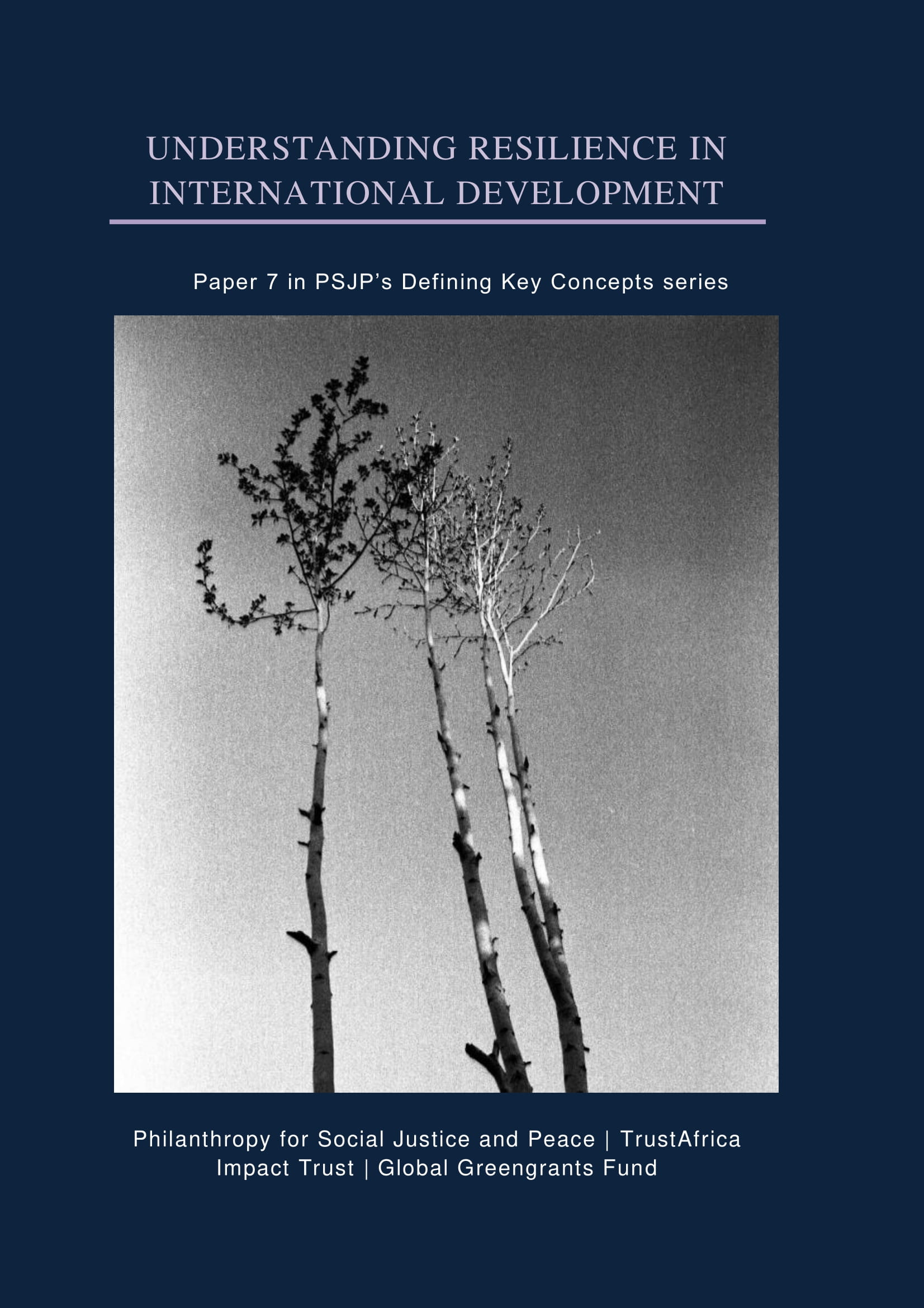
Since 2020, as part of its Defining Key concepts series, Philanthropy for Social Justice and Peace (PSJP) has been addressing whether resilience – the buzzword of the moment, is a useful concept in development. Initial results were published in 2021 in Building resilience in international development. The paper shares the elements of resilience strategies such as local leadership, for development organizations and funders that are essential to bring about transformation. We followed up with further explorations and a second report is published today: Understanding resilience in international development.
In the discourse of development and philanthropy, the term resilience is used across the spectrum between two poles. In some contexts, resilience means weathering the transition to change, while in others it implies endurance and adaptation and is used to protect the status quo. In this paper, we explore this paradox. The goal is to develop an understanding of resilience in development and philanthropy so that it can be applied more meaningfully in our work.
This paper is based on a dialogue between 14 practitioners from civil society and philanthropy organized in December 2021 with Eva Rehse of Global Greengrants Fund and Halima Mahomed, a research fellow at TrustAfrica, as provocateurs who drew out the tension between two poles of resilience and set up the conditions for us to explore where we stand.
The paper is published by PSJP, Global Greengrants Fund, Impact Trust and TrustAfrica. It is co-authored by Barry Knight (CENTRIS, UK) and Chandrika Sahai (PSJP) with contributions from Halima Mahomed (TrustAfrica), Eva Rehse (GGF, UK) and Tamzin Ractliffe (Impact Trust).
We would love to hear your feedback on the papers as well as your stories about how you experience ‘resilience’ as a development concept so that we can continue to unpack the concept and make its meaning clearer in development and philanthropic practice. To engage write to us at chandrika@global-dialogue.org